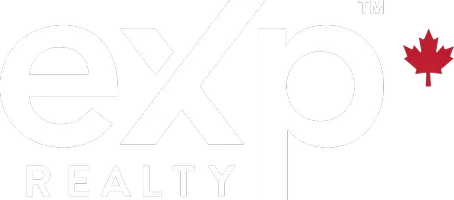The Ultimate Guide to Starting the Mortgage Application Process in Alberta

Introduction
Why Understanding the Mortgage Application Process is Crucial
Starting the mortgage application process can seem like a daunting task. But with the right information, you can navigate it with ease. Understanding each step will help you avoid pitfalls and secure the best deal possible.
Did you know that you can use your RRSP as a downpayment?
How This Guide Will Help You
This guide is designed to provide you with a clear and comprehensive overview of the mortgage application process in Alberta. Whether you're a first-time homebuyer or just need a refresher, you'll find valuable insights and practical tips to make your journey smoother.
Assessing Your Financial Readiness
Evaluating Your Current Financial Situation
Before diving into mortgage applications, it’s essential to assess your financial health. Start by reviewing your income, savings, and existing debts. This will give you a clear picture of your financial stability and your ability to handle a mortgage.
The Importance of a Good Credit Score
Your credit score is a key factor in the mortgage approval process. A score above 650 is typically considered good and can help you secure better interest rates. If your score isn’t where you want it to be, consider taking steps to improve it before applying.
Understanding Your Debt-to-Income Ratio
Your debt-to-income (DTI) ratio is another crucial factor. Lenders use this ratio to determine how much of your income goes toward debt payments. Aim for a DTI ratio below 36% to improve your chances of getting approved.
Determining the Type of Mortgage
Fixed-Rate Mortgages
A fixed-rate mortgage offers stability with a constant interest rate throughout the term of the loan. This can be a good option if you prefer predictable payments and want to lock in a rate for the long term.
Variable-Rate Mortgages
Variable-rate mortgages come with fluctuating interest rates based on market conditions. While this can lead to lower initial rates, it also means your payments could increase if interest rates rise.
Hybrid Mortgages
Hybrid mortgages combine features of both fixed and variable rates. They offer a mix of stability and flexibility, allowing you to benefit from lower rates while still having some predictable elements.
Choosing the Right Mortgage for Your Goals
Consider your long-term financial goals and risk tolerance when selecting a mortgage type. Fixed-rate mortgages are great for stability, while variable-rate mortgages might offer savings if rates are low.
Looking for details on all downpayment options?
Getting Pre-Approved for a Mortgage
What is Mortgage Pre-Approval?
Pre-approval is the process where a lender evaluates your financial situation to determine how much they’re willing to lend you. It provides a clear budget and strengthens your position as a buyer.
The Benefits of Pre-Approval
Having a pre-approval in hand shows sellers that you’re a serious buyer. It also protects you from potential interest rate increases for up to 120 days, giving you time to find the perfect home.
How to Get Pre-Approved
To get pre-approved, you'll need to submit financial documents to your lender. This typically includes proof of income, credit history, and details about your assets and liabilities.
Gathering Necessary Documentation
Essential Documents You’ll Need
Prepare the following documents to streamline your mortgage application:
- Proof of income (pay stubs, employment letters)
- Proof of assets (bank statements, investment accounts)
- Government-issued ID
- Any existing property agreements
How to Organize Your Paperwork
Organize your documents into a single folder or digital file for easy access. Ensure all documents are up-to-date and accurate to avoid delays in the application process.
Choosing the Right Lender
Banks vs. Credit Unions vs. Mortgage Brokers
Compare different types of lenders:
- Banks: Offer standard mortgage products and may have less flexibility.
- Credit Unions: Often provide competitive rates and personalized service.
- Mortgage Brokers: Can help you find the best rates from various lenders but may charge fees.
Comparing Terms and Rates
When evaluating lenders, compare interest rates, repayment terms, and additional fees. Look for a lender that offers favorable terms and excellent customer service.
The Importance of Customer Service
Good customer service can make a significant difference in your mortgage experience. Choose a lender that is responsive and willing to answer your questions throughout the process.
Tips and Strategies for a Smooth Application Process
Improving Your Credit Score
If your credit score is less than ideal, work on improving it before applying. Pay off existing debts, avoid taking on new ones, and make sure to pay your bills on time.
Budgeting for Mortgage Payments and Additional Costs
Create a detailed budget that includes not just your mortgage payments but also property taxes, insurance, and maintenance costs. Aim to keep your mortgage payment below 28% of your gross monthly income.
Consulting with Professionals
Engage with mortgage brokers or financial advisors to get expert advice. They can help you navigate complex mortgage options and ensure you’re making informed decisions.
Understanding Closing Costs
Be prepared for additional expenses beyond the down payment. Closing costs can include appraisal fees, legal fees, and land transfer taxes. Knowing these costs in advance will help you avoid surprises.
Conclusion
Starting the mortgage application process in Alberta can be straightforward with the right preparation. Assess your financial readiness, understand mortgage types, get pre-approved, and choose the right lender to set yourself up for success. With careful planning and the right tools, you’ll be well on your way to owning your first home.
FAQs
What is the best way to improve my credit score before applying for a mortgage?
Pay off existing debts, avoid accumulating new debt, and ensure timely payment of bills.
How much should I budget for closing costs?
Closing costs typically range from 1.5% to 4% of the purchase price. Be prepared for appraisal fees, legal fees, and land transfer taxes.
What documents are required for a mortgage application?
You’ll need proof of income, proof of assets, government-issued ID, and any existing property agreements.
How long does the mortgage pre-approval process take?
Pre-approval can take anywhere from a few hours to a few days, depending on how quickly you provide the necessary documentation.
What should I look for when comparing mortgage lenders?
Compare interest rates, repayment terms, fees, and customer service to find the best lender for your needs.
Categories
- All Blogs (22)
- downsizing (2)
- Eco-friendly Homes (1)
- Edmonton Bylaws (2)
- Events & Community News (4)
- First Time Home Buyer (4)
- Gardening & Landscaping (1)
- Home Buying Tips (14)
- Home Insurance (2)
- Home Selling Tips (6)
- How to (9)
- increase home value (8)
- Interior Design (1)
- Local Market Trends (8)
- market Influences (11)
- Market Update (9)
- Migration (2)
- Mortgage Info (2)
- Moving & Relocation (8)
- Neighborhood Profiles (4)
- Real Estate FAQs (15)
- Real Estate Investment (1)
- Real Estate Laws & Regulations (2)
- Technology in Real Estate (2)
Recent Posts










"My job is to find and attract mastery-based agents to the office, protect the culture, and make sure everyone is happy! "
